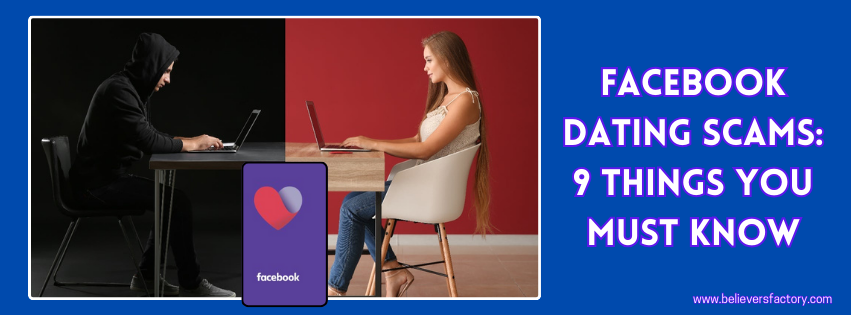Facebook Dating Scams: 9 Essential Tips
- Be wary of profiles with limited information
- Watch for rapid emotional involvement
- Never send money or personal data
- Use reverse image search to verify photos
- Be cautious of sob stories or emergencies
- Insist on video calls to confirm identity
- Trust your instincts if something feels off
- Research common scam tactics
- Report suspicious profiles to Facebook
Online dating has revolutionized the way we connect with potential partners, and Facebook’s entry into this space has opened up new possibilities for millions of users. However, with these opportunities come risks, particularly in the form of Facebook dating scams. As more people turn to social media platforms to find love, scammers are becoming increasingly sophisticated in their tactics: the birth romance scam. This blog post will explore nine crucial things you need to know to protect yourself from falling victim to these deceptive practices.
1. Understanding the Landscape of Facebook Dating Scams
Facebook dating scams have become a significant concern in recent years. These scams often involve creating fake profiles to lure unsuspecting users into emotional relationships, with the ultimate goal of financial exploitation. Scammers may pose as attractive individuals, or military personnel, or even use stolen identities to appear legitimate.
Romance scam statistics show that victims lost a record $547 million in 2021 alone, highlighting the severity of this issue. Understanding the tactics used in Facebook dating scams is the first step in protecting yourself.
2. Red Flags to Watch For
Recognizing the warning signs of a potential scam is crucial. Here are some red flags to be aware of:
- Profiles with limited information or inconsistencies
- Rapid expressions of love or strong emotions
- Reluctance to meet in person or via video chat
- Requests for money or financial assistance
- Claims of emergencies or crises
If you encounter any of these signs, it’s essential to proceed with caution and reevaluate the relationship.
3. The Importance of Verifying Identities
One of the most effective ways to protect yourself from Facebook dating scams is to verify the identity of the person you’re talking to. This can be done through:
- Reverse image searches of profile pictures
- Requesting video calls
- Cross-referencing information with other social media profiles
Catfish and Sweethearts: The Online Dating Scam Industry provides insights into how scammers create convincing fake profiles. By taking steps to verify identities, you can significantly reduce your risk of falling victim to these scams.
4. Never Send Money or Personal Information
A cardinal rule in avoiding Facebook dating scams is never to send money or share sensitive personal information with someone you’ve only met online. Scammers often create elaborate stories to justify their requests for financial assistance, playing on your emotions and sense of compassion.
Remember, legitimate romantic interests will not ask for money or sensitive data early in a relationship. If you’re ever in doubt, consult with trusted financial advice resources before making any decisions.
5. The Psychology Behind Facebook Dating Scams
Understanding the psychological tactics employed by scammers can help you stay vigilant. These individuals are skilled at manipulation and often use techniques such as:
- Love bombing: Overwhelming you with affection and attention
- Gaslighting: Making you doubt your own judgment
- Isolation: Encouraging you to keep the relationship secret
By familiarizing yourself with these tactics, you’ll be better equipped to recognize and resist them. The Psychology of Scams offers valuable insights into the mindset of both scammers and victims.
6. Protecting Your Online Presence
Maintaining a secure online presence is crucial in preventing Facebook dating scams. Take these steps to enhance your digital security:
- Use strong, unique passwords for all accounts
- Enable two-factor authentication on Facebook and other platforms
- Be cautious about the information you share publicly on social media
- Regularly review your privacy settings
Online Safety Tips provides comprehensive guidance on securing your online presence across various platforms.
7. Reporting Suspicious Activity
If you encounter a suspected scammer on Facebook, it’s important to report them to help protect others. Facebook provides tools for reporting suspicious profiles and activities. Additionally, you can report scams to:
- The Federal Trade Commission (FTC)
- Your local law enforcement agency
- Internet Crime Complaint Center (IC3)
By reporting Facebook dating scams, you contribute to the broader effort to combat online fraud and protect vulnerable individuals.
8. Recovering from a Scam
If you’ve fallen victim to a Facebook dating scam, it’s crucial to take immediate action:
- Cut off all contact with the scammer
- Report the incident to Facebook and the relevant authorities
- Contact your bank or credit card company if you’ve sent money
- Seek support from friends, family, or professional counselors
Remember, you’re not alone, and there are resources available to help you recover. Victim Support Services offers guidance and assistance for those affected by online scams.
9. The Future of Online Dating Safety
As Facebook dating scams continue to evolve, so do the methods to combat them. Facebook and other platforms are investing in artificial intelligence and machine learning technologies to detect and prevent fraudulent activities.
Users can stay informed about the latest developments in online dating safety by following reputable tech news sources like TechCrunch and Wired.
Conclusion
Navigating the world of online dating requires vigilance and awareness, especially when it comes to Facebook dating scams. By understanding the risks, recognizing red flags, and taking proactive steps to protect yourself, you can enjoy the benefits of online dating while minimizing the potential for harm.
Remember, a genuine romantic connection should never come at the cost of your financial or emotional well-being. Stay informed, trust your instincts, and prioritize your safety as you explore the possibilities of finding love online.
Frequently Asked Questions
- How common are Facebook dating scams? Facebook dating scams are increasingly common, with millions of dollars lost to romance fraud each year. It’s estimated that 1 in 7 dating profiles may be fake.
- What are some common tactics used in Facebook dating scams? Common tactics include creating fake profiles, love bombing, requesting money for emergencies, and making excuses to avoid meeting in person or video chatting.
- How can I verify if someone I’m talking to on Facebook Dating is real? Use reverse image searches, request video calls, and cross-reference information with other social media profiles. Be wary of profiles with limited information or inconsistencies.
- What should I do if I suspect I’m being scammed on Facebook Dating? Cease communication immediately, report the profile to Facebook, and consider reporting the incident to law enforcement or the FTC.
- Can scammers access my personal information through Facebook Dating? Scammers can only access the information you choose to share. Never provide sensitive personal or financial information to someone you’ve only met online.
- Are there any safe ways to send money to someone I’ve met on Facebook Dating? It’s never safe to send money to someone you haven’t met in person. Legitimate romantic interests won’t ask for financial assistance early in a relationship.
- How can I protect my Facebook account from being used by scammers? Use strong passwords, enable two-factor authentication, and be cautious about the information you share publicly on your profile.
- What are some red flags that indicate a Facebook Dating profile might be a scam? Red flags include profiles with very few photos or friends, rapid expressions of love, reluctance to meet or video chat, and requests for money or financial assistance.
- Can Facebook detect and prevent dating scams automatically? Facebook uses AI and machine learning to detect suspicious activity, but it’s not foolproof. Users should remain vigilant and report any suspicious behavior.
- What resources are available for victims of Facebook dating scams? Victims can seek support from organizations like the FTC, IC3, and local law enforcement. There are also support groups and counseling services available for emotional recovery.










